Biblical Hermeneutics : Methodologies and Perspectives
Hermeneutics is one of the most interdisciplinary branches of knowledge. For any discipline: history, philosophy, theology, science, ecology, culture, politics, and others, one needs hermeneutics. Likewise, biblical hermeneutics can also be studied from different perspectives namely, Old Testament, New Testament, Biblical Theology, Doctrinal Study, and so on, making it multifaceted. Given this circumstance, the objective of this book is to make biblical hermeneutics reader and student-friendly from an interdisciplinary approach (philosophy, biblical, and theology). On the other hand, there are hundreds of well-written books on biblical hermeneutics; however, a large number of books are extremely abstract or philosophical and unsystematic for young readers; in a sense, they bring in different philosophers, hermeneuts, and other scholars without any introductory notes on those experts; thus, making the students confused and difficult to understand. This trait is explicitly shared by numerous theological students from various theological seminaries and colleges in India. Therefore, this book, Biblical Hermeneutics: Methodologies and Perspectives, is a humble attempt to make hermeneutics easy to read, reliable, comprehensive, contextualized, and provides vital information without losing its philosophical, biblical, and theological implications.
Contents
Acknowledgements
Preface
List of Abbreviations
Introduction
1. Defining Hermeneutics
2. Defining Exegesis
3. Biblical Exegesis and Hermeneutics
4. Steps for Biblical Exegesis
5. Defining Criticism
6. Scholars’ Definitions of Hermeneutics
7. Key Hermeneutical Definitions
8. Three Categories of Hermeneutics
9. Why Need for Biblical Hermeneutics
10. Different Types of Biblical Hermeneutics
11. Where Does Meaning Lie? Author, Text, Reader (Past or Present)
12. Two Horizons and Fusion of Horizons
13. Hermeneutics of Suspicion
14. Hermeneutical Circle and Hermeneutical Spiral
15. Objectivity and Subjectivity Questions in Hermeneutics
16. Recommended Books
Chapter 1: Historical and Philosophical Contexts of Biblical Interpretation in the West
Introduction
1.1. Historical Aspects of Hermeneutics
1.2. Development of Hermeneutics
1.3. Ancient Greek Hermeneutics
1.4. Ancient Jewish Hermeneutics
1.4.1. Scripture Interpreting Scripture
1.4.2. Qumran Used of Scripture
1.4.3. Hermeneutics of the Schools of Hillel and Shammai
1.4.4. Hellenistic Jewish Hermeneutics
1.5. The Biblical Period: Early Christians Used of the Scripture
1.5.1. Jesus’ Hermeneutics
1.5.2. Paul’s Hermeneutics
1.5.3. The Early Christians
1.6. The Patristic Period: Allegorical Method and Tradition as Authority
1.6.1. Alexandrian School
1.6.2. Antiochene School
1.7. The Late Patristic Period: Jerome and Augustine
1.8. The Medieval Period: Dogmatism and Scholasticism
1.9. The Reformation Period: Sola Scriptura, Gospel-Christ Centered Interpretation
1.9.1. Luther’s Hermeneutics
1.9.2. Calvin’s Hermeneutics
1.9.3. Counter-Reformation Period: Roman Catholic Hermeneutics
1.9.4. Post-Reformation Protestant Hermeneutics
1.10. The Enlightenment and Modern Periods
1.10.1. Rationalism
1.10.2. Empiricism
1.10.3. Chladenius’ Hermeneutics
1.10.4. Romanticism
1.10.4.1. Schleiermacher’s Hermeneutics
1.10.4.2. Dilthey’s Hermeneutics
1.10.5. Existential Hermeneutics
1.10.5.1. Heidegger’s Hermeneutics
1.10.5.2. Bultmann’s Hermeneutics
1.11. Textual Criticism
1.12. Historical-Critical Method
1.12.1. Source Criticism
1.12.2. Form Criticism
1.12.3. Redaction Criticism
1.13. Fundamentalism
1.14. Various Types of Interpretation: A Critical Appraisal
1.14.1. Hermeneutical Necessity
1.14.2. Holy Spirit and Hermeneutics
Conclusion
Chapter 2: Cultural Criticisms and Liberationist Readings of the Scripture
Introduction
2.1. Philosophical Hermeneutics
2.1.1. Psychoanalytical Hermeneutics
2.1.2. Gadamer’s Hermeneutics
2.1.3. Ricoeur’s Hermeneutics
2.1.3.1. Hermeneutics of Suspicion
2.1.4. Foucault’s Hermeneutics
2.1.5. Habermas’ Hermeneutics
2.1.6. Feminist Hermeneutics
2.2. Theological Hermeneutics
2.2.1. Barth’s Hermeneutics
2.2.2. New Hermeneutics: Fuchs and Ebeling
2.3. Readings Prompted by Developing Nations Theologies of Liberation
2.3.1. Latin American Liberationist Hermeneutics
2.3.2. Feminist Biblical Hermeneutics
2.3.3. Dalit Biblical Hermeneutics
2.3.4. Tribal/Adivasi Biblical Hermeneutics
2.4. Marxist Criticism
2.5. Socio-Scientific Criticism
2.6. Sociological Methods: Structural Functionalism and Cultural Materialism
2.6.1. Structural Functionalism
2.6.2. Cultural Materialism
2.7. Cultural Anthropology
2.8. Psychological and Psychoanalytical Approaches
2.9. Socio-Literary Method
2.10. Materialist Reading
2.11. Socio-Political Reading
Conclusion
Chapter 3: Postmodernist Phase of Biblical Interpretation
Introduction
3.1. Structuralism
3.2. Poststructuralism and Deconstruction
3.2.1. Barthes’ Theory
3.2.2. Derrida’s Deconstruction
3.3. Postmodern Hermeneutics
3.4. New Literary Critical Readings – Narrative, Reader-Response, Rhetoric, Canonical Approaches
3.4.1. Narrative Criticism
3.4.2. Reader-Response Criticism
3.4.3. Rhetorical Criticism
3.4.4. Canonical Criticism
3.5. New Historicism
3.6. Autobiographical Readings
3.7. Ideological Criticism
3.8. Subaltern Studies
3.9. Feminist and Womanist Readings
3.10. Postcolonial Studies
3.11. Ecocriticism/Ecological Hermeneutics
Conclusion
Chapter 4: Interpretations of Scripture in Asia and India
Introduction
4.1. Asian Theological Hermeneutics
4.1.1. Song’s Hermeneutics
4.1.2. Koyama’s Hermeneutics
4.2. Indian Philosophical or Vedic Hermeneutics
4.2.1. Dhvani Theory
4.2.2. Heterodox School’s Hermeneutics
4.2.2.1. Principles of Buddhist Hermeneutics
4.2.3. Orthodox Schools’ Hermeneutics
4.2.3.1. Mimamsa Procedure of Understanding
4.3. Survey of Biblical Interpretations in India
4.3.1. Western Protestant Missionary Hermeneutics
4.4. Methods of Biblical Reading and Hermeneutics Emerged in India
4.4.1. Dhvani Reading of Scripture
4.4.2. Indian Biblical and Theological Hermeneutics
4.4.3. Dalit Reading of Scripture
4.4.4. Adivasi Reading of Scripture
4.4.5. Tribal Reading of Scripture
Conclusion
Chapter 5: Tribal Hermeneutics: A Communitarian Hermeneutics
Introduction
5.1. Towards a Holistic Hermeneutical Enterprise
5.2. Indigenous-Tribal Hermeneutics
5.2.1. Nirmal Minz
5.2.2. Renthy Keitzar
5.2.3. K. Thanzauva
5.2.4. Wati Longchar
5.2.5. Yangkahao Vashum
5.2.6. Tribal Feminist/Womanist Hermeneutics
5.2.6.1. R. L. Hnuni
5.2.6.2. Limatula Longkumer
5.2.6.3. Lalnghakthuami
5.2.6.4. Eyingbeni Lotha
5.2.6.5. Lovely Awomi James
5.2.6.6. Nyimangyang Chang
5.2.6.7. Other Tribal Hermeneutics
5.3. Hermeneutics of Community
5.4. Eco-Hermeneutics or Creation-Centered Hermeneutics
5.5. Tribal Literary Criticism
5.6. Storytelling/Narratology
5.6.1. Bible and Narrative
Conclusion
Conclusion
Appendix
Bibliography
BECOME A MEMBER

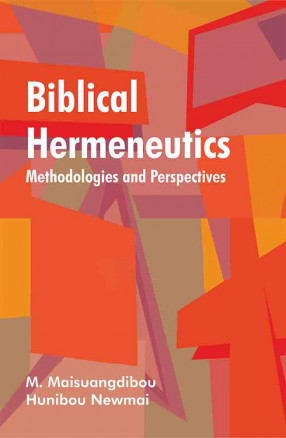
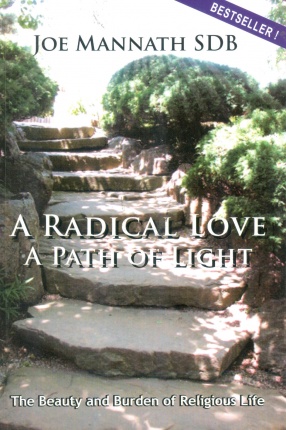
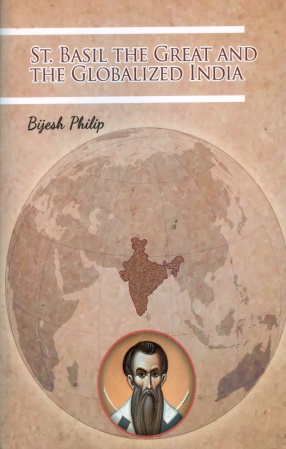
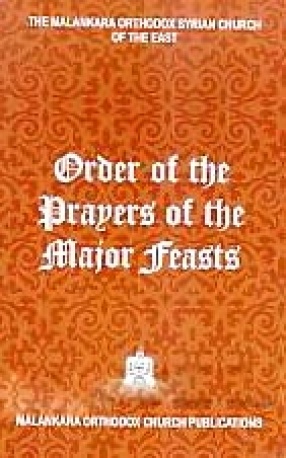
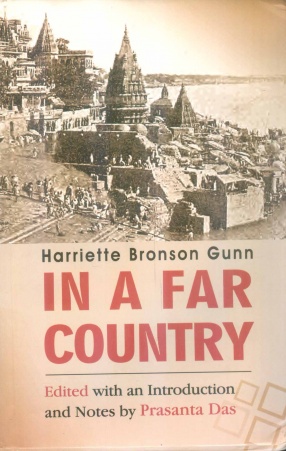

Bibliographic information